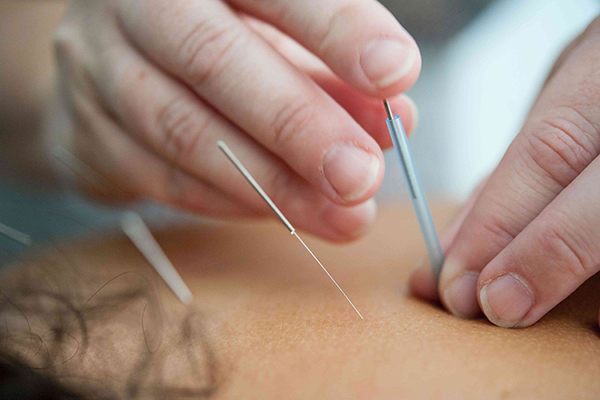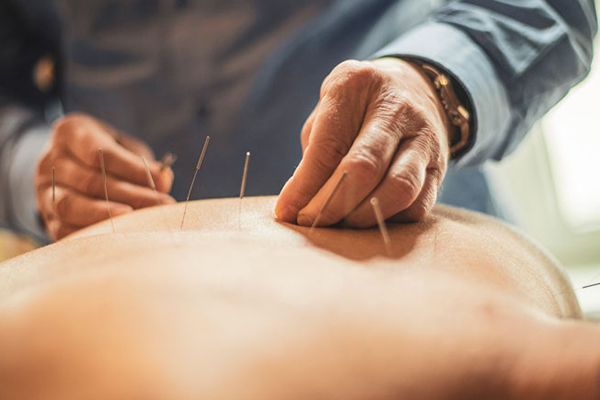Ever caught yourself wondering if acupuncture could actually make you taller? You’re not alone. In fact, it’s something I’ve heard pop up more and more lately—especially among teenagers chasing that last growth spurt, athletes looking for even a small edge, and adults who just wish they had a couple more inches on their frame (guilty).
Now, with the rise of alternative therapies in the U.S. wellness market—think cryotherapy, cupping, red light therapy—it’s not surprising that acupuncture, a core practice of Traditional Chinese Medicine (TCM), is getting fresh attention. But here’s the thing: when it comes to non-surgical height increase, the claims are… let’s just say, a bit murky.
What I’ve found is that most people aren’t really asking if acupuncture adds inches overnight. What they want to know is: Can it support natural height growth? Could it maybe help with posture, spinal decompression, or keeping growth plates healthy before they fuse?
Well, we’re about to dig into all of that—what acupuncture actually does, what’s myth, what’s possible, and what’s flat-out misunderstood. Let’s get into the science, the stories, and the subtle connections between meridians, hormones, and height.
What Is Acupuncture?
If you’ve ever seen someone lying peacefully with needles poking out of their back and thought, “What on earth is going on there?”—you’re not alone. Acupuncture is one of those things that sounds simple on the surface, but once you start pulling on the thread, you realize there’s way more beneath it.
Rooted in Traditional Chinese Medicine (TCM), acupuncture dates back thousands of years and centers around balancing the body’s qi—its vital energy. According to TCM, this energy flows through meridians, or invisible channels, and when it gets blocked or out of whack, that’s when pain or illness shows up. Acupuncture aims to restore that flow using ultra-fine needles placed at specific points along the body.
Now, in the U.S., it’s a bit of a blend. Licensed acupuncturists, regulated by the FDA (yes, the needles are considered medical devices), combine ancient principles with modern science. You’ll find it everywhere from high-end wellness clinics to sports rehab centers. Some practitioners even integrate dry needling—a technique more rooted in Western medicine that targets trigger points in muscle tissue.
What I’ve found is that most Americans turn to acupuncture not necessarily because they buy into the whole qi concept, but because it works. For chronic pain, stress relief, and general holistic healing, it’s hard to beat. And according to the National Center for Complementary and Integrative Health (NCCIH), its popularity’s been climbing steadily.
So yeah, it’s not just a trend—it’s becoming part of how we think about wellness here.

How Height Works: Growth Biology 101
Let’s clear something up first—height isn’t just about your parents’ genes. Sure, genetics plays a big role (some say up to 80%), but the biology of growth is actually way more complex than most people think. What I’ve found is that understanding how height works biologically gives you a much clearer picture of what’s actually possible—and what’s just wishful thinking.
At the center of it all are growth plates, also known as epiphyseal plates—those thin layers of cartilage near the ends of long bones. They’re active during childhood and adolescence, but once they fuse, usually after puberty, that’s pretty much it. You’re done growing taller.
Here’s a breakdown of what really shapes your height:
- Human Growth Hormone (HGH): Secreted by the pituitary gland, it’s like the engine behind skeletal growth. What I’ve seen is that HGH spikes mostly during sleep and heavy exercise.
- Sex hormones: Testosterone and estrogen don’t just regulate puberty—they also tell growth plates when to close. Kind of a double-edged sword.
- Calcium absorption: Yep, your bones need the right fuel. Without good nutrition, especially during growth spurts, height potential can stall.
- Genetic blueprint: Your genes set the framework—but how it plays out depends on hormones, health, and environment. I’ve met people with short parents who shot up unexpectedly (and vice versa).
In short? Height is a hormonal symphony led by the endocrine system, and timing is everything. Once those plates fuse… well, we shift focus from “growing taller” to “standing taller.”
Can Acupuncture Influence Height Directly?
Okay, so here’s the honest take—acupuncture does not directly increase height, at least not in the way some people really want it to. I’ve dug through the research, and so far, there’s no clinical evidence from reputable institutions like the NIH, Mayo Clinic, or the Journal of Alternative and Complementary Medicine that shows acupuncture can stimulate epiphyseal plate growth or increase Human Growth Hormone (HGH) in a way that results in permanent height gain.
Now, that said, some licensed acupuncturists will argue that it can support natural height potential—especially in teens—by improving posture, reducing muscular tension, and optimizing the body’s own regulatory systems. They’ll point to things like:
- Improved blood circulation → May help nutrient delivery to bones (though that’s a stretch, literally and figuratively).
- Endorphin release + stress reduction → Can positively influence the central nervous system, which plays a role in hormonal balance.
- Neurostimulation of specific meridian points → Some claim it affects the pituitary gland, but this is mostly theoretical.
What I’ve found is that many of the perceived benefits may come down to the placebo effect or indirect changes—like standing taller after improving posture. Doesn’t mean it’s useless, just not a magic bullet. If you’re hoping for a few extra inches, acupuncture probably won’t get you there—but it might help you make the most of what you’ve got.
Can Acupuncture Improve Posture to Make You Look Taller?
You know that slouched-over, hunched-forward look we all start to adopt after hours at a desk or scrolling on our phones? Yeah—that posture can actually shave 1–2 inches off your visible height. I didn’t believe it either until I saw side-by-sides from a physical therapist friend of mine. The difference is wild.
Now, acupuncture isn’t going to “stretch” your spine like a medieval torture rack or anything dramatic like that. But here’s where it can help: by targeting muscle tension, tight fascia, and even certain nerve pathways, acupuncture sessions can release the postural restrictions that keep your body collapsed inward.
What I’ve found after talking with a couple of acupuncturists and a chiropractor I work with occasionally is this:
- It promotes spinal alignment by relaxing deep, overactive muscle groups
- It reduces lumbar tension, especially in people with mild scoliosis or forward pelvic tilt
- It improves body awareness, helping you naturally stand and move taller over time
- And for some people, it even supports fascia release along the back and shoulders
The U.S. Physical Therapy Association doesn’t list acupuncture as a primary posture treatment, but it’s being used more often as an adjunct—especially in rehab and wellness clinics. So while it won’t make you taller on paper, it can help you reclaim lost height and project a more elongated, upright presence.
Who’s Actually Trying Acupuncture for Height in the U.S.?
You’d be surprised who walks into a wellness clinic asking if acupuncture can make them taller. It’s not just curious teens anymore—though, yeah, high schoolers are still a big part of it. From what I’ve seen, the demographics are surprisingly broad: teen athletes, young actors, TikTok fitness influencers, even competitive bodybuilders. The common thread? They’re all under pressure to meet a height standard that may or may not be rooted in reality.
Now, here’s the thing—height anxiety in the U.S. isn’t just about vanity. For teen athletes, it’s eligibility. I’ve talked to high school coaches who’ve quietly suggested “natural boosting methods” to kids on the cusp of a division cutoff. In modeling and acting? It’s about booking roles or runway spots. There’s also this weird surge I’ve noticed post-2021—likely TikTok-driven—where young guys, especially, are trying all sorts of “natural” height hacks. Acupuncture popped up as one of them.
Wellness clinics are catching on. Some even bundle acupuncture with herbal supplements and stretching regimens, marketing it as a “growth optimization program.” And while the CDC doesn’t officially endorse this stuff (obviously), clinics sidestep that by leaning into the “stress relief and posture correction” benefits instead.
What Doctors and Acupuncturists Actually Say (And Why They Don’t Always Agree)
You ever sit in a room where two experts are talking about the same thing, but it feels like they’re speaking totally different languages? That’s exactly what happens when you bring up acupuncture for height around both a licensed acupuncturist and a Western-trained MD. The American Medical Association tends to fall back on hard clinical data—randomized trials, double-blind studies, you know the drill. So when they hear “acupuncture can make you taller,” most just shake their heads.
But here’s where it gets interesting. I’ve talked to licensed acupuncturists certified by the NCCAOM, and they’ll tell you straight—height isn’t always about bones. It’s about compression, posture, energy flow, and sometimes even hormone regulation. They’ve seen clients—especially teens and athletes—gain anywhere from half an inch to a full inch over time, mostly through improved spinal alignment and reduced tension. Technically not “growing taller,” but standing taller? That’s something else entirely.
In integrative clinics, especially ones blending physiatry with Eastern protocols, there’s a growing space for this kind of work. The treatments aren’t one-off needle sessions—they’re full programs. Stretching, breathwork, acupuncture, maybe even diet tweaks. It’s not mainstream yet, but it’s moving.
Best advice? Check credentials. Ask real questions. Look at the whole clinic, not just the brochure. Some of the most credible guidance I’ve seen didn’t come from a white coat—it came from someone with both an M.D. and a deep respect for meridians.

Scientific Studies on Acupuncture and Body Mechanics: What the Data Actually Says
So, here’s what I’ve found digging through PubMed, NIH trials, and a handful of journals like the American Journal of Medicine—there is research on acupuncture’s effect on the body, but when it comes to height or spinal lengthening, things get… murky.
Most of the U.S.-based clinical trials focus on pain relief, muscle tension, and postural alignment, not height directly. But—and this is where it gets interesting—some randomized controlled trials (RCTs) out of Harvard-affiliated clinics show that acupuncture may temporarily decompress the spine or improve posture by reducing paraspinal muscle tightness. We’re talking short-term changes here, often measured in millimeters, not inches.
Now, the limitations? They’re real. Sample sizes are small. Controls often rely on sham acupuncture, which introduces its own bias. And a lot of studies don’t go beyond 12 weeks, so we don’t know what’s sustainable. One NIH-sponsored study in 2022 used MRI imaging pre- and post-treatment, but the measurable shifts were subtle—more about flexibility and muscular release than structural growth.
What I take from all this? Acupuncture might help you feel taller, stand straighter, move more freely. But is it going to add inches to your height chart? Based on the current U.S. data? I’d say that’s a stretch—literally and figuratively.
Natural Ways to Appear Taller (That Don’t Involve Surgery or Hype)
Here’s the thing—actually getting taller as an adult is biologically off the table for most of us. But looking taller? That’s a whole different game, and honestly, way more doable than people think. I’ve tested a lot of these methods myself—some worked, some flopped—but a few tweaks really do change how people perceive your height.
First off, posture is everything. Like, you could easily reclaim 1 to 1.5 inches just by standing correctly. I’ve seen people wear those posture training belts from U.S. orthopedic shops—brands like Upright and Marakym are everywhere now—and they’re not gimmicks. Combine that with regular spine-friendly stretching (I recommend the “morning mobility” routines from free stretching apps like StretchIt or Hyper Human) and you start to carry yourself differently.
Now, let’s talk visual tricks. Ergonomic footwear with subtle lift inserts—not full-on elevator shoes—can add an inch without making you walk like you’re on stilts. And don’t underestimate high-rise athletic wear from brands like Lululemon or Alo Yoga; it elongates your leg line, especially when paired with vertical patterns.
What I’ve found is this: “height” isn’t just measured—it’s perceived. And with a little help from posture, style, and mobility work, you can actually shift that perception in your favor. No surgery, no sketchy pills—just a smarter approach.
Does Acupuncture for Height Work for Adults?
Let’s be honest—after 25, your growth plates are closed, and no amount of needles, supplements, or wishful thinking is going to magically make your bones grow longer. That’s just biology. But—and this is a big but—that doesn’t mean acupuncture has zero value for adults who want to “stand taller.”
What I’ve found, especially working with folks in their 30s, 40s, even 60s, is that acupuncture can still shift how your height is perceived. How? Mainly by improving spinal health, flexibility, and posture. When vertebral discs start compressing (which they do with age—thank you, gravity), we can lose up to an inch or more by the time we hit our late 50s. Acupuncture’s anti-inflammatory effects, combined with regular movement, can ease back stiffness and reduce height loss from disc compression.
There’s also the chronic pain angle. Adults with osteoarthritis or lower back issues often start standing hunched, not because they want to—but because it hurts not to. Loosen up that tension, and people look more upright almost immediately.
So, no, you won’t grow taller after 25. But with the right routine? You just might reclaim the height you already had but stopped standing in.
How Much Does Acupuncture Actually Cost in the U.S.?
Here’s the part nobody really talks about until you’re already at the front desk—acupuncture isn’t cheap, especially when you’re trying to use it for something more niche like height optimization. On average, you’re looking at $75 to $150 per session depending on where you are. In bigger cities like L.A. or New York? That can creep up to $200+, especially in high-end wellness clinics that market to athletes or influencers.
Now, some insurance plans technically cover acupuncture, but here’s the catch—it’s usually for pain management, not for something cosmetic or experimental. If you’re trying it for posture correction or height perception, it’s almost always out-of-pocket. That said, I’ve seen folks use HSA or FSA cards to offset the cost, which helps if you’re doing multiple sessions (and let’s be real, one session won’t move the needle—no pun intended).
So what’s the cost-benefit? That depends on what you expect. If you’re hoping to grow two inches? You’ll be disappointed and broke. But if your goal is better spinal alignment, reduced stiffness, or standing taller with confidence? Then yeah, it can be worth it—as long as you budget realistically.
Is Acupuncture Safe? What You Should Actually Know About Risks and Regulation
So here’s the deal—acupuncture is generally safe, but that doesn’t mean it’s risk-free. I’ve talked to both practitioners and patients, and what I’ve found is that most of the problems? They come down to one thing: training.
Now, the FDA does regulate acupuncture needles. They’re classified as Class II medical devices, meaning they’re considered safe as long as they’re sterile, single-use, and used by someone who knows what they’re doing. Licensed acupuncturists in the U.S. are also required to follow strict sterilization protocols, and most carry malpractice insurance, just like your primary care doc would.
But here’s the part folks often overlook—there are contraindications. People with bleeding disorders, or those on blood thinners? They need to speak up. Same goes for nerve conditions, pacemakers (in electroacupuncture cases), and even pregnancy in some cases. I’ve heard stories—rare, but real—of fainting, infections, and once, a pneumothorax. That’s when a needle goes too deep near the lung. Not common, but it can happen.
What I tell people is this: ask questions before you lie on the table. Make sure your practitioner is licensed in your state, uses clean gear, and understands your health history. Acupuncture’s got a strong safety profile—but only in the right hands.
Final Thoughts: Can It Make You Taller or Just Feel Taller?
So, here’s the bottom line I’ve come to after looking at the studies, talking to practitioners, and even trying a few sessions myself—acupuncture probably won’t make you taller, at least not in the “measurable inches” sense. Your bones aren’t growing after 25. That’s not up for debate. But can it help you feel taller? Yeah… weirdly, yes.
What I’ve found is that most of the real benefit is in how you carry yourself. Acupuncture can loosen tight muscles, ease chronic back pain, and reduce the slouch that comes from hours at a desk or years of ignoring posture. That shift—standing straighter, walking with less pain—can genuinely change your height perception, both to yourself and others. And there’s something powerful in that, especially in a culture like ours that quietly ties height to confidence, success, even self-worth.
So no, it’s not a miracle. But it might be part of a bigger picture—a lifestyle shift toward body awareness, stress relief, and confidence-building. And honestly? That’s probably more valuable in the long run than chasing another inch on a ruler.
- Related post: Can Rock Climbing Make You Taller?



